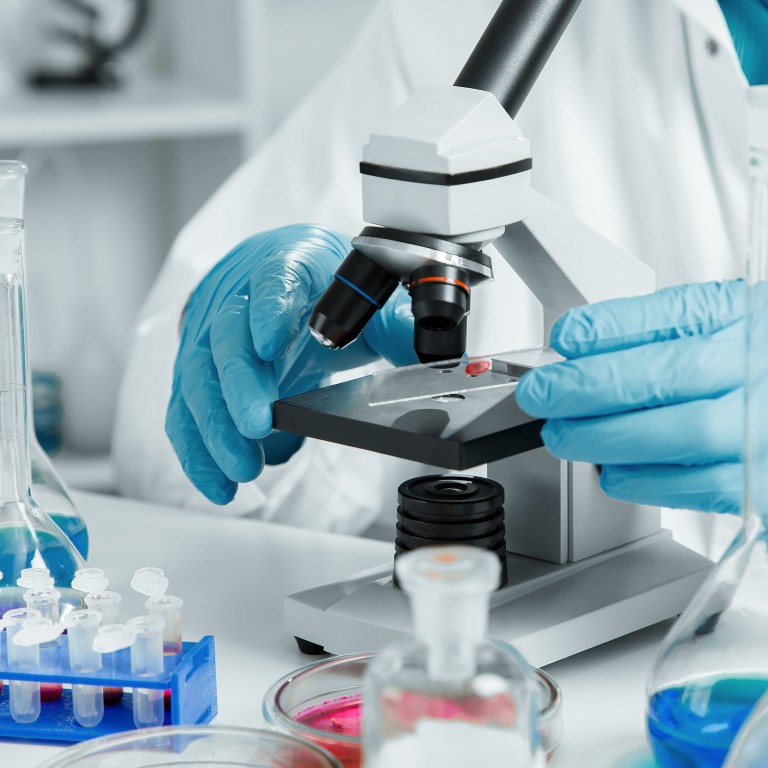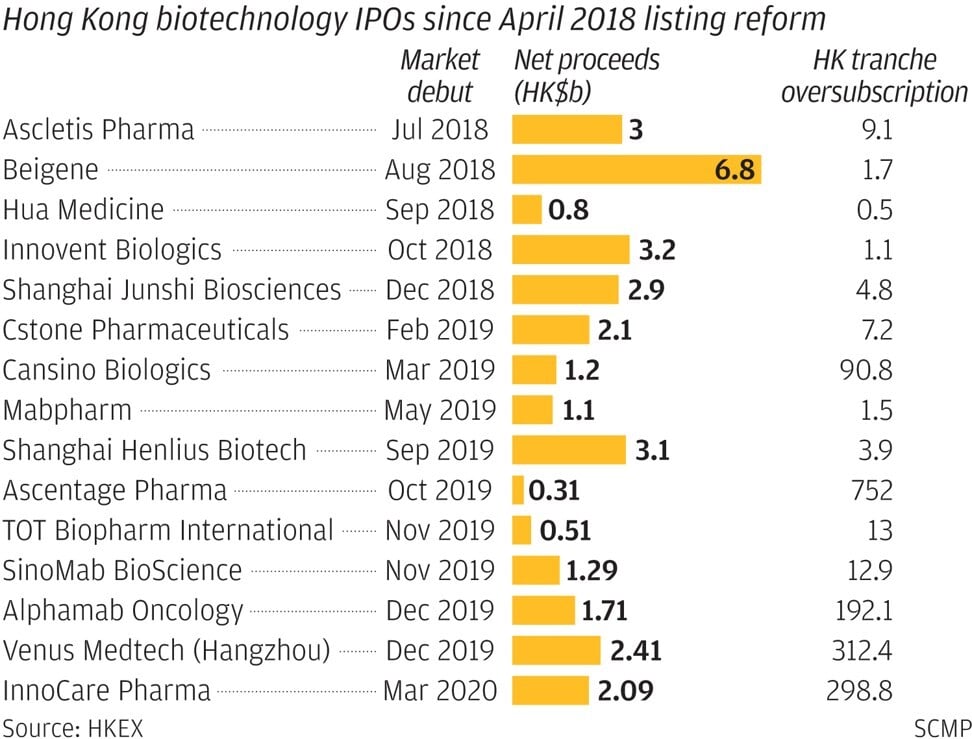
Billionaire Li Ka-shing’s biotech unit hopes for new cancer drug approvals, expands sales army in China amid stock rally in London
- Hutchison China MediTech hopes to receive the green light to market surufatinib by year-end, savolitinib by mid-2021, CEO Hogg says
- Stock has rallied 70 per cent in London over the past six months, outpacing benchmark index’s 8.5 per cent advance
Hutchison China MediTech (Chi-Med), whose stock has surged 70 per cent in London over the past six months, expects to receive approvals to sell its endocrine and lung cancer drugs in China by June next year, chief executive officer Christian Hogg said.
The cancer drugs manufacturing and innovation unit of billionaire Li Ka-shing‘s conglomerate CK Hutchison, plans to triple the size of its marketing team over the next three years in anticipation of the green light, he added. That will take the headcount from current 350 to 450 by the end of this year, and to more than 1,000 by 2023.

“Some local competitors have many thousands of salespeople, but we are no slouchers,” Hogg told a SCMP Research webinar earlier this week. “We have full understanding on running teams across China, which is a highly fragmented economy. It is not easy, you have to have military-style operations.”
SCMP Research: China Healthcare Report 2020
Having created and studied thousands of chemical compounds, its drugs discovery team of 250 scientists has put nine candidates under clinical studies. It does all discovery work in-house, except for certain toxicity tests.
Among them, Chi-Med hopes to receive the green light to market surufatinib by year-end, he added. Another drug discovered by Chi-Med, savolitinib, may be approved by mid-2021 for marketing in China for non-small cell lung cancer patients, Hogg said.
The company began selling its colorectal cancer drug fruquintinib in 2018, the first oncology drug developed by a Chinese company to receive unconditional approval from local authorities. Its sales amounted to US$14 million in the first half, a 23 per cent increase from a year earlier. Chi-Med will take over the marketing from its US partner Eli Lilly from October 1, Hogg said.
“We have almost 350 marketing representatives, multiple of what Eli Lilly has on the ground,” he added. “The same team will also launch surufatinib, our drug for neuro-endocrine tumours, 70 per cent of which are found in the gastrointestinal tract.”
China recorded some 774,000 new lung cancer cases in 2018, almost one-fifth of all cancer cases in the nation, followed by colon, stomach, liver and breast cancers, according to government statistics. There were about 67,600 newly diagnosed patients with neuro-endocrine tumors, which are typically found in intestines, pancreas and lungs.

Chi-Med may break-even in 2024 if the new drugs’ development progresses as planned. It booked a net loss of US$106 million last year, Hogg said. The stock traded at 490 pence in London on September 30, capping a 70 per cent gain in six months. The FTSE 100 Index rose 8.5 per cent over the same period.
The firm, which was listed in London in 2006 and New York in 2016, will “absolutely” list in either Hong Kong or Shanghai “at some point”, he said. A venue will be chosen to better align the interests of Chi-Med and its investors.
Chi-Med’s clinical team in New Jersey has concurrently won “fast-track” designation on fruquintinib and surufatinib from the US Food and Drug Administration for new drugs approval process. Only one other Chinese biotech firm [BeiGene] has got a drug through this stage in the US, Hogg added.
Fruquintinib was included late last year in the Chinese government’s national health insurance reimbursement list, after Chi-Med agreed to lower its price by 62 per cent to make it accessible to a large base of patients.

